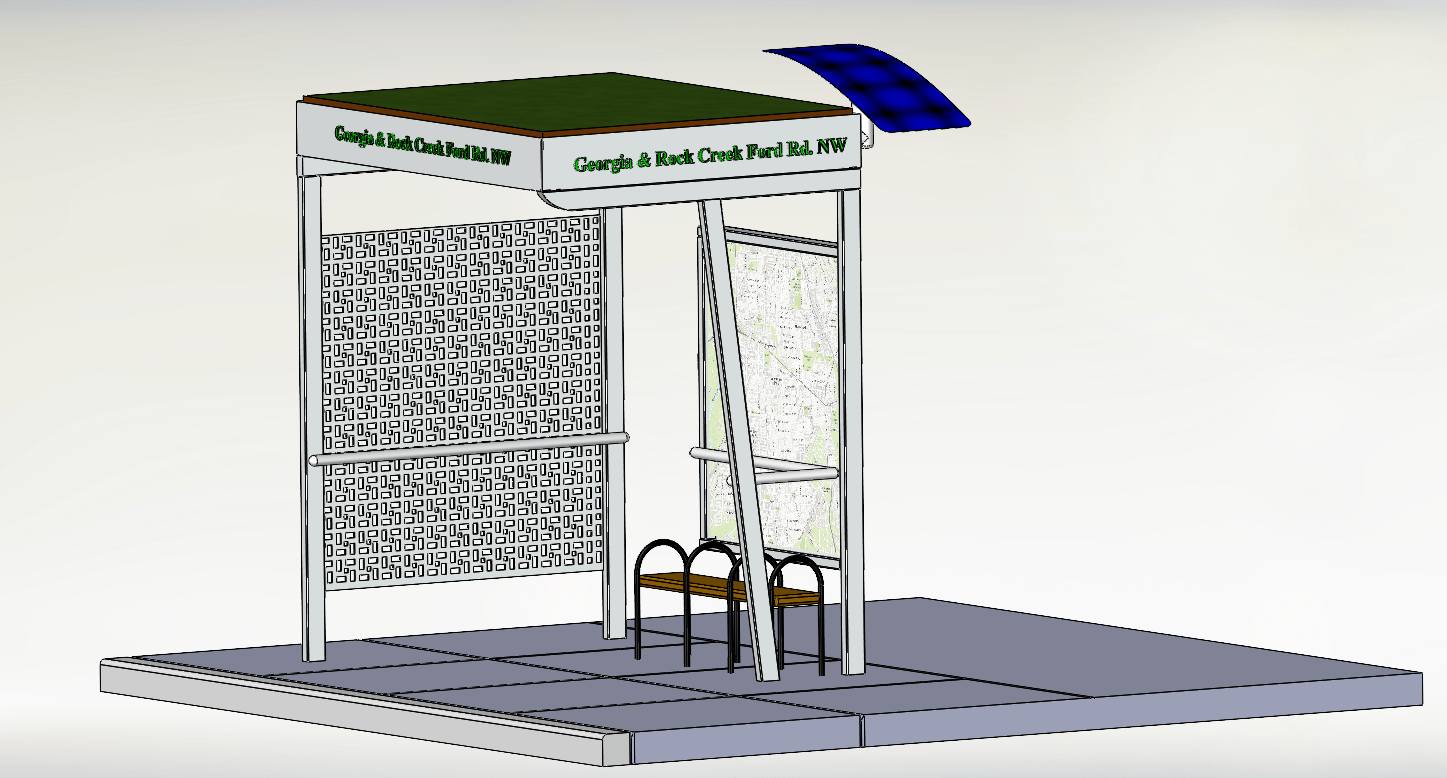Project Description:
As global temperatures rise (NASA, 2023), the demand for sustainable and climate-resilient transportation infrastructure increases (Wang et al., 2018). The current climate has heightened the impacts of the Urban Heat Island Effect (Urban Heat Hot Spots, 2023), which causes highly paved areas of cities lacking vegetation to have a temperature higher than average. People who need to spend time outdoors, including those waiting at bus stops are especially vulnerable to extreme heat (Kenney, 2023). The elderly are at a higher risk of developing heat-related illnesses, as well as worsening any preexisting conditions (Kenney, 2023). Urban heat resilience measures improve the safety and comfort of riders during periods of extreme heat through proper heat management (Fraser & Chester, 2017). Therefore, improvements to existing systems like bus stops are necessary to mitigate the impacts of extreme heat, integrate sustainable practices, and enhance the overall urban experience (United Nations Department of Economic and Social Affairs, 2016). This project investigates and compares the efficiency and feasibility of active and passive heat mitigation methods currently used at bus shelters. Cluster 18 of Washington, DC was chosen as the area of study for heat-resilient bus shelters due to the high projected population of elderly people and those of lower socio-economic status (DC Forecasts | Op, n.d.). The proposed solution prioritizes the most prospective heat mitigation methods in a modular, cooler bus shelter design that incorporates the accessibility and comfort needs of bus riders in Cluster 18. This design is estimated to reduce the apparent WBGT temperature inside the shelter by 10 degrees Celsius (Ernst & Watkins, 2023).
